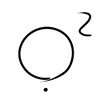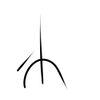Contionary:wi: Difference between revisions
Jump to navigation
Jump to search
| (23 intermediate revisions by 3 users not shown) | |||
| Line 19: | Line 19: | ||
====Derived terms==== | ====Derived terms==== | ||
====Related terms==== | ====Related terms==== | ||
{{bm-eng-2|ety=we|meaning=first person plural pronoun|class=Pronoun|pron={{bm-ipa-2|wi}}}} | |||
==Skundavisk== | ==Skundavisk== | ||
===Etymology=== | ===Etymology=== | ||
From Middle Skundavisk ''vi'', from Old Skundavisk ''vi'', from Halmisk '' | From Middle Skundavisk ''vi'', from Old Skundavisk ''vi'', from Halmisk ''ᚹᛁ'' (''wi''), ''ᚹᛁᛉ'' (''wiŕ''), from Proto-Germanic ''*wīz''. | ||
===Pronunciation=== | ===Pronunciation=== | ||
| Line 65: | Line 65: | ||
! colspan="1" rowspan="4" style="background-color:lightgreen" | 2nd person | ! colspan="1" rowspan="4" style="background-color:lightgreen" | 2nd person | ||
! colspan="1" style="background-color:lightgreen" | nominative | ! colspan="1" style="background-color:lightgreen" | nominative | ||
| colspan="3" style="text-align:center" | | | colspan="3" style="text-align:center" | ðou | ||
| colspan="1" style="text-align:center" | ji | | colspan="1" style="text-align:center" | ji | ||
|- | |- | ||
! colspan="1" style="background-color:lightgreen" | accusative | ! colspan="1" style="background-color:lightgreen" | accusative | ||
| colspan="3" style="text-align:center" | | | colspan="3" style="text-align:center" | ðig | ||
| colspan="1" style="text-align:center" | | | colspan="1" style="text-align:center" | jyw | ||
|- | |- | ||
! colspan="1" style="background-color:lightgreen" | genitive | ! colspan="1" style="background-color:lightgreen" | genitive | ||
| colspan="3" style="text-align:center" | | | colspan="3" style="text-align:center" | ðijn | ||
| colspan="1" style="text-align:center" | jer | | colspan="1" style="text-align:center" | jer | ||
|- | |- | ||
! colspan="1" style="background-color:lightgreen" | dative | ! colspan="1" style="background-color:lightgreen" | dative | ||
| colspan="3" style="text-align:center" | | | colspan="3" style="text-align:center" | ðir | ||
| colspan="1" style="text-align:center" | | | colspan="1" style="text-align:center" | jyw | ||
|- | |- | ||
! colspan="1" rowspan="4" style="background-color:lightyellow" | 3rd person | ! colspan="1" rowspan="4" style="background-color:lightyellow" | 3rd person | ||
| Line 104: | Line 104: | ||
| colspan="1" style="text-align:center" | him | | colspan="1" style="text-align:center" | him | ||
| colspan="1" style="text-align:center" | him | | colspan="1" style="text-align:center" | him | ||
|- | |||
! colspan="1" rowspan="4" style="background-color:pink" | reflexive | |||
! colspan="1" style="background-color:pink" | nominative | |||
! colspan="4" style="background-color:lightgrey" | | |||
|- | |||
! colspan="1" style="background-color:pink" | accusative | |||
| colspan="4" style="text-align:center" | sig | |||
|- | |||
! colspan="1" style="background-color:pink" | genitive | |||
| colspan="4" style="text-align:center" | sijn | |||
|- | |||
! colspan="1" style="background-color:pink" | dative | |||
| colspan="4" style="text-align:center" | sir | |||
|} | |} | ||
| Line 112: | Line 125: | ||
[[Category:Contionary]] [[Category:Bearlandic pronouns]] [[Category:Bearlandic words]] [[Category:Skundavisk words]] [[Category:Skundavisk pronouns]] | [[Category:Contionary]] [[Category:Bearlandic pronouns]] [[Category:Bearlandic words]] [[Category:Skundavisk words]] [[Category:Skundavisk pronouns]] | ||
==Knrawi== | |||
===Etymology 1=== | |||
{{wacag|what}} | |||
{{knra-inh}} | |||
===Pronunciation=== | |||
{{knra-ipa|ʍɪ˥|ʍɪ˥|χʷɪ˥|wɪ˥|xʷy˥|xʷi˥}} | |||
===Determiner=== | |||
{{head|knra|determiner}} | |||
# {{lb|knra|relative|interrogative}} who, what | |||
#: {{ux|knra||}} | |||
# {{lb|knra|relative}} which, that | |||
#: {{ux|knra||}} | |||
===Derived terms=== | |||
{{col-auto|knra|wmaa wi}} | |||
===Etymology 2=== | |||
{{wacag|child}} | |||
{{knra-inh}} | |||
===Pronunciation=== | |||
{{knra-ipa|ʍɪ˥|ʍɪ˥|χʷɪ˥|wɪ˥|xʷy˥|xʷi˥}} | |||
===Noun=== | |||
{{head|knra|noun}} | |||
# child | |||
#: {{ux|knra||}} | |||
===Descendants=== | |||
*{{desc|loxw|xwi}} | |||
Latest revision as of 19:24, 26 September 2025
Bearlandic
Alternative forms
Etymology
Pronunciation
(Bearlandic) IPA: /ʋi/
Pronoun
wi
- we
- example usage of wi here
- italicised translation here.
- example usage of wi here
Inflection
Usage notes
Synonyms
Derived terms
Related terms
Bemé
Etymology
From English we.
Pronunciation
Pronoun
wi
- first person plural pronoun
Skundavisk
Etymology
From Middle Skundavisk vi, from Old Skundavisk vi, from Halmisk ᚹᛁ (wi), ᚹᛁᛉ (wiŕ), from Proto-Germanic *wīz.
Pronunciation
- IPA: /wɪ/
Pronoun
wi
- we
- Wi sagden hir, te komen.
- We told them to come.
- Wi sagden hir, te komen.
Inflection
| number and gender | singular | plural | |||
|---|---|---|---|---|---|
| masculine | feminine | neuter | all genders | ||
| 1st person | nominative | ik | wi | ||
| accusative | mig | uns | |||
| genitive | mijn | unser | |||
| dative | mir | uns | |||
| 2nd person | nominative | ðou | ji | ||
| accusative | ðig | jyw | |||
| genitive | ðijn | jer | |||
| dative | ðir | jyw | |||
| 3rd person | nominative | hi | si | hit | si |
| accusative | hin | hee | hit | hir | |
| genitive | his | her | his | her | |
| dative | him | her | him | him | |
| reflexive | nominative | ||||
| accusative | sig | ||||
| genitive | sijn | ||||
| dative | sir | ||||
Usage notes
Synonyms
Derived terms
Related terms
Knrawi
Etymology 1
| Wacag logograph |
|---|
 |
Inherited.
Pronunciation
⫽ʍɪ˥⫽
- (Standard) IPA(key): [ʍɪ˥]
- (Royal) IPA(key): [χʷɪ˥]
- (Urban Anajrn) IPA(key): [wɪ˥]
- (Ufhewat) IPA(key): [xʷy˥]
- (Zjiiama) IPA(key): [xʷi˥]
Determiner
wi
- (relative, interrogative) who, what
- (please add the primary text of this usage example)
- (please add an English translation of this usage example)
- (relative) which, that
- (please add the primary text of this usage example)
- (please add an English translation of this usage example)
Derived terms
Etymology 2
| Wacag logograph |
|---|
 |
Inherited.
Pronunciation
⫽ʍɪ˥⫽
- (Standard) IPA(key): [ʍɪ˥]
- (Royal) IPA(key): [χʷɪ˥]
- (Urban Anajrn) IPA(key): [wɪ˥]
- (Ufhewat) IPA(key): [xʷy˥]
- (Zjiiama) IPA(key): [xʷi˥]
Noun
wi
- child
- (please add the primary text of this usage example)
- (please add an English translation of this usage example)
Descendants
- Central Isles Creole: xwi